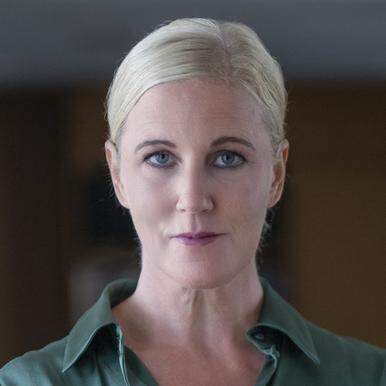
By Anna Stellinger, Deputy Director General, Confederation of Swedish Enterprise
The global trade landscape is undergoing a radical transformation with unforeseeable consequences. Daunting tariffs enacted under the Trump administration, geopolitical tensions and trade conflicts are creating fragility and uncertainty in global trade, supply chains and production.
Indian and European businesses alike are feeling the reverberations of these geopolitical pressures. European foreign investors face market volatility and supply chain disruptions, while Indian exporters are among the hardest hit by Trumpian tariff policies.
In this context, strengthening economic ties between the European Union and India can benefit both parties and help reduce our vulnerabilities. European businesses can benefit from gaining access to one of the world’s fastest-growing market, whiles Indian businesses secure technology and investment to fuel India’s economic growth and development. As an example, the country whose businesses I represent, Sweden, brings, with companies like Volvo, Ericsson, and IKEA technological expertise, sustainable manufacturing practices, and a strong tradition of innovation. India, in turn, offers a young, skilled workforce and a rapidly expanding digital economy. This synergy is not merely transactional: it represents a strategic alignment that mitigates global uncertainties while creating long-term growth opportunities.
Central to this effort is a meaningful European Union–India Free Trade Agreement (FTA). Such an agreement could considerably deepen trade and investment relations far beyond existing levels – if it is ambitious. The FTA should prioritise cutting tariffs on industrial goods, but that is not the only area where we can improve our economic cooperation. Alignment of product standards and mutual recognition of conformity assessments for market-specific technical standards also are essential. Cooperation on sustainability is evidently important. To ease market access, the deal must reduce red tape with simplified customs procedures and a streamlined, transparent regulatory framework, which also promotes digital trade. A survey of Swedish firms carried out last year indicated that almost 60 per cent of the responding companies would be encouraged to expand their business ties with India if these issues were resolved.
To the Confederation of Swedish Enterprise, a free trade agreement between the EU and Europe is a priority, and has been so for many years. The Swedish business community has long recognised the potential of doing business in and with India. 280 Swedish firms operate in India’s key sectors today, creating significant employment and growth opportunities. At the Confederation, we have therefore prioritised policy work that will further strengthen business ties between Swedish and Indian firms. We have based our work on a solid evidence base. Respecting the political sensitivities and ambitions of India and other EU countries, we have found favour for our views amongst the top brass of Swedish, Indian and European decision makers.
As true champions of open, transparent and evolving global markets, Sweden punches above its economic weight and size in defending the principles of rules-based trade and agreements that expand opportunities rather than erect barriers. As such, we are often seen as a bastion for free trade and global markets within the European Union. Likewise, India’s economic policies increasingly reflect a commitment to integrating into global value chains and fostering trade openness. By joining forces, we can lend momentum to the EU–India FTA and to promoting freer, fairer rules-based trade and investment, ensuring that these do not wither on the vine.
In a time of global conflict, peaking tariffs and barriers the sheer size of the India-EU FTA in terms of both GDP and population, will send out a powerful signal to the rest of the world and can shift the global agenda. By investing in closer business ties from Malmö to Mumbai, by championing a comprehensive EU–India FTA and by reaffirming our commitment to rules-based open trade, Sweden, Europe and India can set a model for global economic cooperation—resilient, innovative, sustainable, and forward-looking.
Anna Stellinger has devoted 20 years of her professional life to Trade and EU Affairs. She was, during 12 years, a Director General appointed by the Swedish government, first for EU Affairs and then for Trade. Today, she is Deputy Director General at Sweden’s major business organisation, the Confederation of Swedish Enterprise, where she is responsible for International and EU policy. Anna is part of the Board of Business Sweden, the Swedish Institute of International Affairs and Swedfund. She was recently appointed by the EU Commission as “Trade Champion”, a title that she is glad to hold.






Leave a Reply